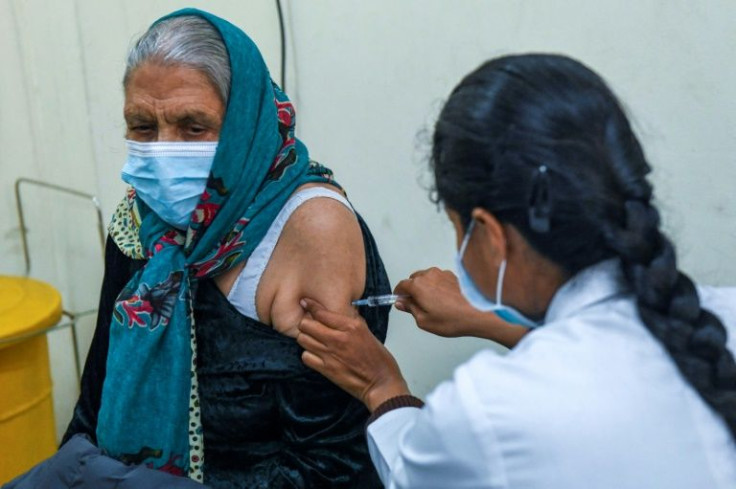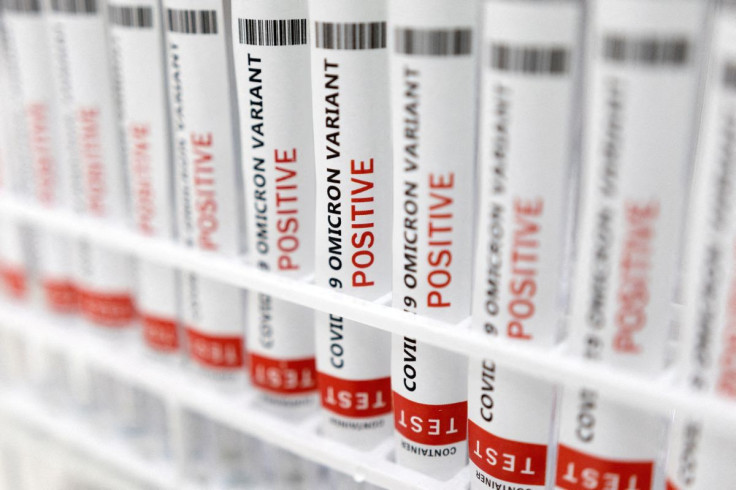Dominant COVID-19 Subvariants Are 'Evading Antibodies': Threaten Boosters, Make Antibody Treatment Ineffective

KEY POINTS
- A study showed that some omicron subvariants are the most immune evasive variants of COVID-19 to date
- People who received omicron boosters had lower levels of antibodies to fight the omicron subvariants
- Two key antibody drugs for coronavirus were "completely inactive" against the new subvariants
COVID-19 omicron subvariants that have become dominant in recent months undermine the effectiveness of new boosters and antibody treatments and could lead to a surge of breakthrough infections, a new study has shown.
According to scientists affiliated with Columbia University and the University of Michigan, the omicron subvariants BQ.1, BQ.1.1, XBB and XBB.1 have become the most immune evasive variants of the coronavirus.
In their study, published Tuesday in the peer-reviewed journal Cell, the scientists wrote that the subvariants are "barely susceptible to neutralization" by existing COVID-19 vaccines, including new boosters targeting omicron.
The study authors also found that people who were vaccinated and had breakthrough infections with prior omicron variants had a weaker immune response against the subvariants, CNBC reported.
"Together, our findings indicate that BQ and XBB subvariants present serious threats to current COVID-19 vaccines, render inactive all authorized antibodies, and may have gained dominance in the population because of their advantage in evading antibodies," the researchers said in their study.
But the scientists insisted that vaccines remain effective at preventing hospitalization and severe cases of omicron.
The study examined blood samples from people vaccinated with three or four shots of the original vaccines, those who received the new boosters against omicron and people vaccinated with the original vaccines who had breakthrough infections from omicron subvariants BA.2 or BA.5.
The study showed that the antibodies of the people who received the omicron boosters were 24 times lower against BQ.1, 41 times lower against BQ.1.1, 66 times lower against XBB and 85 times lower against XBB.1 compared to their performance against the original coronavirus strain.
But the individuals who received the boosters had slightly higher antibody levels against all of the omicron subvariants compared with those who had received three or four shots of the original vaccines, the study found.
Vaccinated individuals who had breakthrough infections were observed to have the highest antibody levels of any group, according to the study. But neutralization was much lower against omicron subvariants than the original strain.
The scientists said the subvariants had evolved dramatically from the previous versions of omicron, potentially posing a serious threat to the efficacy of current coronavirus vaccines.
"Therefore, it is alarming that these newly emerged subvariants could further compromise the efficacy of current COVID-19 vaccines and result in a surge of breakthrough infections, as well as re-infections," the study said.
The XBB.1 subvariant poses the biggest challenge for the scientists, as it is 49 times more resistant to antibody neutralization compared to the BA.5 subvariant. But data from the Centers for Disease Control and Prevention shows that the XBB.1 currently comprises just 1% of all infections in the U.S.
Evusheld and bebtelovimab, essential antibody drugs used by people with weak immune systems for COVID-19, were "completely inactive" against the new subvariants, the scientists said.
The scientists expressed concern over the subvariants posing a danger for immunocompromised people "who do not respond robustly to COVID-19 vaccines."
The authorization to use bebtelovimab to treat COVID-19 patients was already withdrawn by the Food and Drug Administration because it is ineffective against the dominant omicron variants.
Dr. Anthony Fauci, the Biden administration's chief medical adviser, urged Americans to get their vaccine shots against COVID-19 to prevent a massive surge of new coronavirus infections.

© Copyright IBTimes 2024. All rights reserved.






















